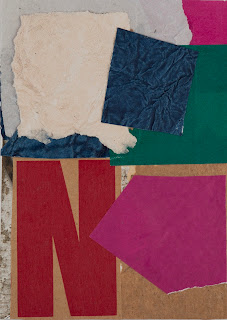The End!
I'm going to take a leap here and try apply Tolstoy's thoughts to our project.
The Epilogue is all about his ideas about history, and whether or not the individual has control. The individual vs. the collective. The last few paragraphs he talks about the laws of astronomy, and how people perceive the immobility of the earth and planets. Which was proven to be incorrect centuries ago. What is true about this project? Individual effort, or something else?
Something -- that is very hard to identify -- drove this project. We worked together, side-by-side, for over 2 years. A real labor of love. We each made our individual contributions, and yet there were larger forces at play. I have often thought of this project in anthropomorphic terms -- it indeed has had a life of it's own. Even though I started the project and have seen it through to it's conclusion -- the Moscow International Book Fair June 8-12, then onto Yasnaya Polyana, the epicenter of everything Tolstoy -- it is still a mystery in a way.
Even though we finished making the collages in February, it has been a pleasure to continue to blog each day. I feel so close to this project; it is hard to say "goodbye". I have learned so much in so many ways. About commitment, about creativity, but mostly about friendship.
This last collage is based on a birthday card that Team Tolstoy made for me last year when I turned 50 on May 28. It seemed like a fitting end, to include the work of all of us on the final piece.
Hats off, Team Tolstoy! What an incredible journey it's been.
My love to you all, always. -- Lola
Lola Baltzell
from page 751-752, volume 2 of original text
collage
made 2/3/12
Pevear/Volokhonsky translation page 1214-1215
I'm going to take a leap here and try apply Tolstoy's thoughts to our project.
The Epilogue is all about his ideas about history, and whether or not the individual has control. The individual vs. the collective. The last few paragraphs he talks about the laws of astronomy, and how people perceive the immobility of the earth and planets. Which was proven to be incorrect centuries ago. What is true about this project? Individual effort, or something else?
Something -- that is very hard to identify -- drove this project. We worked together, side-by-side, for over 2 years. A real labor of love. We each made our individual contributions, and yet there were larger forces at play. I have often thought of this project in anthropomorphic terms -- it indeed has had a life of it's own. Even though I started the project and have seen it through to it's conclusion -- the Moscow International Book Fair June 8-12, then onto Yasnaya Polyana, the epicenter of everything Tolstoy -- it is still a mystery in a way.
Even though we finished making the collages in February, it has been a pleasure to continue to blog each day. I feel so close to this project; it is hard to say "goodbye". I have learned so much in so many ways. About commitment, about creativity, but mostly about friendship.
This last collage is based on a birthday card that Team Tolstoy made for me last year when I turned 50 on May 28. It seemed like a fitting end, to include the work of all of us on the final piece.
Hats off, Team Tolstoy! What an incredible journey it's been.
My love to you all, always. -- Lola
Lola Baltzell
from page 751-752, volume 2 of original text
collage
made 2/3/12
Pevear/Volokhonsky translation page 1214-1215

















































